Mehmet Gurkan, a member of the Turkish animal rights group HAYTAP, rescues a dog that was trapped for seven days inside a house affected by the earthquake in Antakya, southeastern Turkey, on Sunday, Feb. 12, 2023. (AP Photo/Bernat Armangue)
JINDERIS, Syria (AP) — Aid agencies and governments stepped up a scramble Tuesday to send help to parts of Turkey and Syria devastated by an earthquake, but a week after the disaster many complained they still were struggling to meet basic needs, like finding shelter from the bitter cold.
The situation was particularly desperate in Syria, where a 12-year civil war has complicated relief efforts and meant days of wrangling over how to even move aid into the country, let alone distribute it. Some people there who lost their homes said they have received nothing. In Turkey, meanwhile, several families crowded into tents meant for just one.
On Monday, the United Nations announced a deal with Damascus to deliver U.N. aid to through two more border crossings from Turkey to rebel-held areas of northwest Syria — but the needs remain enormous.
Ahmed Ismail Suleiman set up a shelter of blankets outside his damaged house in the town of Jinderis, one of the worst-hit communities in northwest Syria. He is afraid to move his family back into a house that might not be structurally sound — but that he cannot afford to repair.
So, for now 18 family members sleep outside in the small makeshift tent.
“We sit but can’t sleep lying down here,” he said. “We are waiting for a proper tent.”
Mahmoud Haffar, head of local council in Jinderis, said that locals have been able to scrounge up about 2,500 tents so far, but some 1,500 families still remain without shelter — as nighttime temperatures fall to around minus 4 degrees Celsius (26 degrees Fahrenheit).
While tents have been in short supply, one women said the town has a surplus of donated bread and water.
To the southwest, in government-held Latakia, Raeefa Breemo said only those packing into shelters seem to be getting aid.
“We need to eat, we need to drink, we need to survive. Our jobs, our lives, everything have stopped,” Breemo said.
Offers of help — from rescue crews to generators to medical equipment — have come from around the world, but the needs remain immense after the magnitude 7.8 quake and powerful aftershocks toppled or damaged tens of thousands of buildings, destroyed roads and closed airports for a time. The quake affected 10 provinces in Turkey that are home to some 13.5 million people, as well as a large area in northwest Syria that is home to millions.
Much of the water system in the quake-hit region was not working, and Turkey’s health minister said samples taken from dozens of points of the water system showed the water was unsuitable to drink.
In Adiyaman, Turkey, on Sunday, Mehmet Arslan listed all the things he needed: water, electricity and a bigger tent. He said seven people were sleeping in one for the moment.
“We’re also battling the cold. … What will we do, I don’t know,” said the 28-year-old. “We’ve got small children. We can handle it but the small children, they’re 1-year-old, 2-years-old, newborns. What do we do with them?”
While a first Saudi aid plane, carrying 35 tons of food, landed in Syrian government-held Aleppo on Tuesday, getting aid to the country’s rebel-held Idlib has been especially complicated.
Until now, the U.N. has only been allowed to deliver aid to the area through a single border crossing with Turkey, or via government territory, which presents its own logistical and political challenges. The United Nations said Monday that President Bashar Assad of Syria had agreed to open two new crossing points from Turkey to his country’s rebel-held northwest.
The crossings at Bab al-Salameh and Al Raée are to be opened for an initial period of three months.
Russia bristled at suggestions that the opening might be made permanent, and its Foreign Ministry accused the West of trying to get aid “exclusively” to areas not controlled by the Syrian government.
“We are on day nine and we are still hearing the question of when will aid get in. We heard yesterday that two crossings may be opened,” said Haffar, of local council in Jenderis. “We hope there is more international interaction and that international aid comes to alleviate the crisis.”
“But so far no aid has come,” he said.
On Tuesday, 14 Syrian-American doctors crossed into Syria in order to help treat victims of the quake, Mazen Alloush, a border official said. Alloush posted several photos of the team including one of members standing in front of a clinic run by the Syrian American Medical Society that is active in Syria’s rebel-held northwest.
Meanwhile, the death toll eclipsed 35,500 — nearly 32,000 of those in Turkey. In Syria, the toll in the northwestern rebel-held region has passed 2,200, according to the rescue group known as the White Helmets. Over 1,400 people have died in government-held areas, according to the Syrian Health Ministry.
The toll is nearly certain to rise as search teams turn up more bodies — and the window for finding survivors was closing.
More than 200 hours after the quake struck, teacher Emine Akgul was pulled from an apartment building in Antakya by a mining search and rescue team, Turkey’s state-run Anadolu news agency reported.
In Adiyaman province, rescuers reached 18-year-old Muhammed Cafer Cetin, and medics gave him an IV with fluids before attempting a dangerous extraction from a building that crumbled further as rescuers were working. Medics fitted him with a neck brace and he was carted away on a stretcher with an oxygen mask, Turkish TV showed.
Two others were rescued from a destroyed building in central Kahramanmaras, near the epicenter. Dozens of rescuers and Turkish soldiers at the site hugged and clapped after the rescues including that of Muhammed Enes, 17, who was seen wrapped in a thermal blanket and carried on a stretcher to an ambulance in images shown by broadcaster Haberturk.
Rescuers then asked for quiet, and one shouted “Can anyone hear me?” in the frenzied hunt for more survivors.
Many in Turkey have blamed faulty construction for the vast devastation, and authorities continued targeting contractors allegedly linked with buildings that collapsed. Turkey has introduced construction codes that meet earthquake-engineering standards, but experts say the codes are rarely enforced.
Copyright 2021 Associated Press. All rights reserved.




















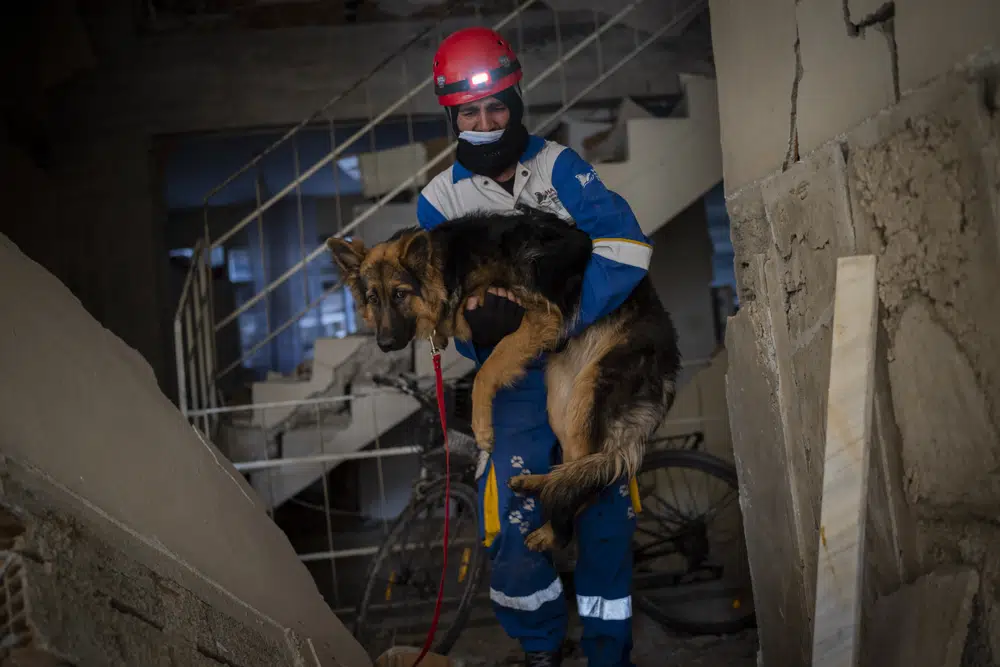

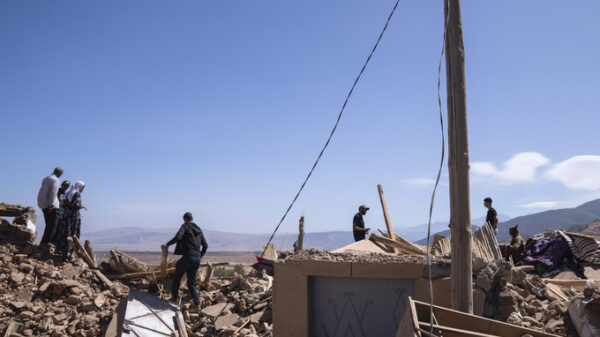
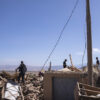
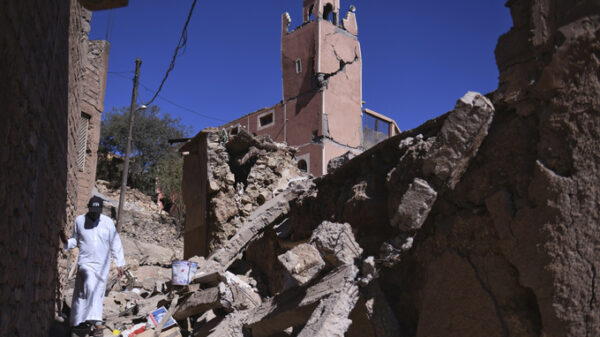
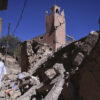
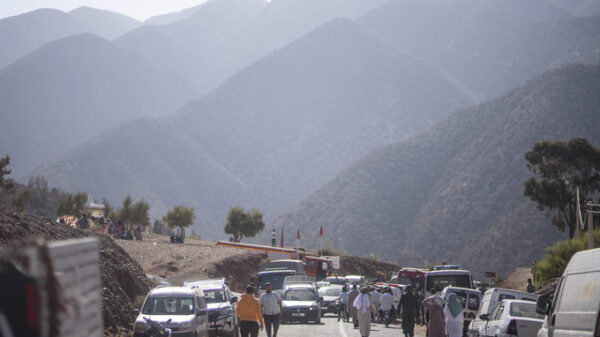
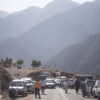
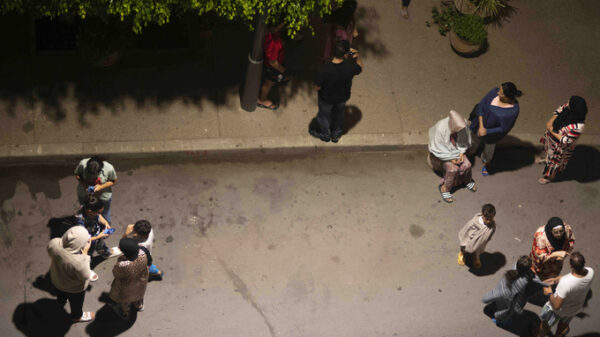
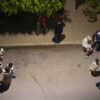
You must be logged in to post a comment Login